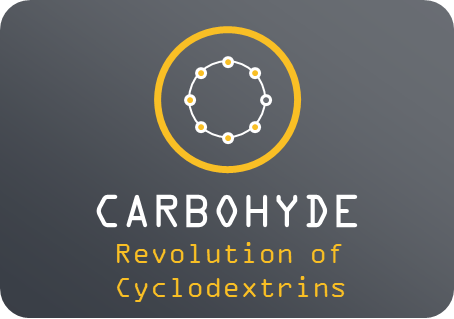today’s cyclodextrin:
CDs in carbon isotope analysis
Compound-specific isotope analysis (CSIA) of organic water contaminants can provide important information about their sources and fate in the environment. Analyte enrichment from water remains nonetheless a critical yet inevitable step before measurement. Commercially available solid-phase extraction (SPE) sorbents are inherently nonselective leading to co-extraction of concurrent dissolved organic matter and in turn to analytical interferences, especially for low-occurring contaminants. Using cyclodextrin polymers (α-, β-, γ-CDP) as SPE sorbents (i) extraction selectivity was increased, (ii) their applicability to carbon isotope analysis for a selection of pesticides was assessed, and (iii) they were compared with commonly used commercial sorbents. Extraction with β-CDP significantly reduced backgrounds in gas chromatography-isotope ratio mass spectrometry (GC-IRMS) and enhanced sensitivity by a factor of 7.5, which was further confirmed by lower carbon-normalized CDOM/Canalyte ratios in corresponding extracts as derived from dissolved organic carbon (DOC) and liquid chromatography-tandem mass spectrometry (LC-MS/MS) analysis. The present study highlights the benefit of selecting innovative extraction sorbents to avoid interferences in advance. This strategy in combination with existing cleanup approaches offers new prospects for CSIA at field concentrations of tens to hundreds of nanograms per liter.
Martin Elsner and Rani Bakkour et al

